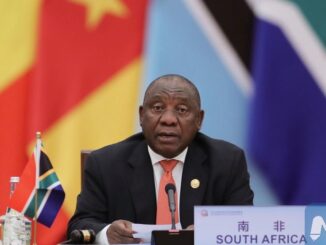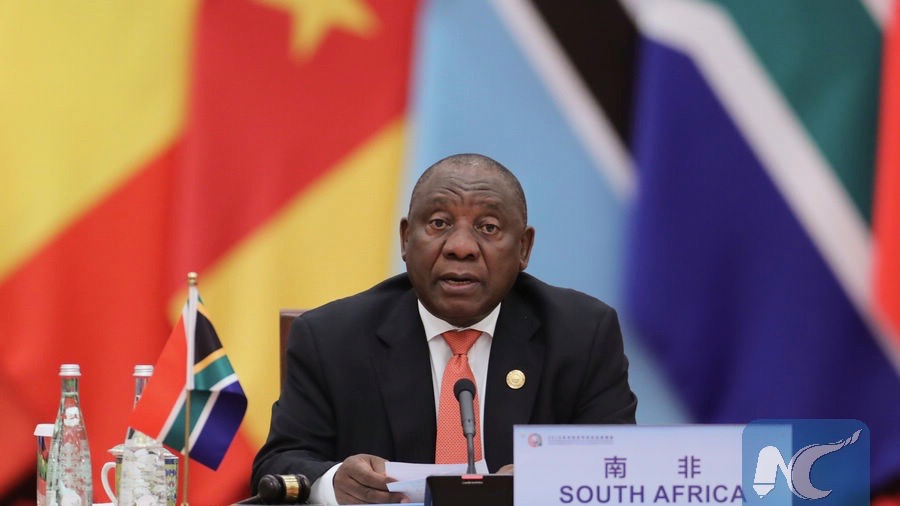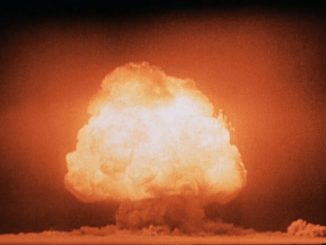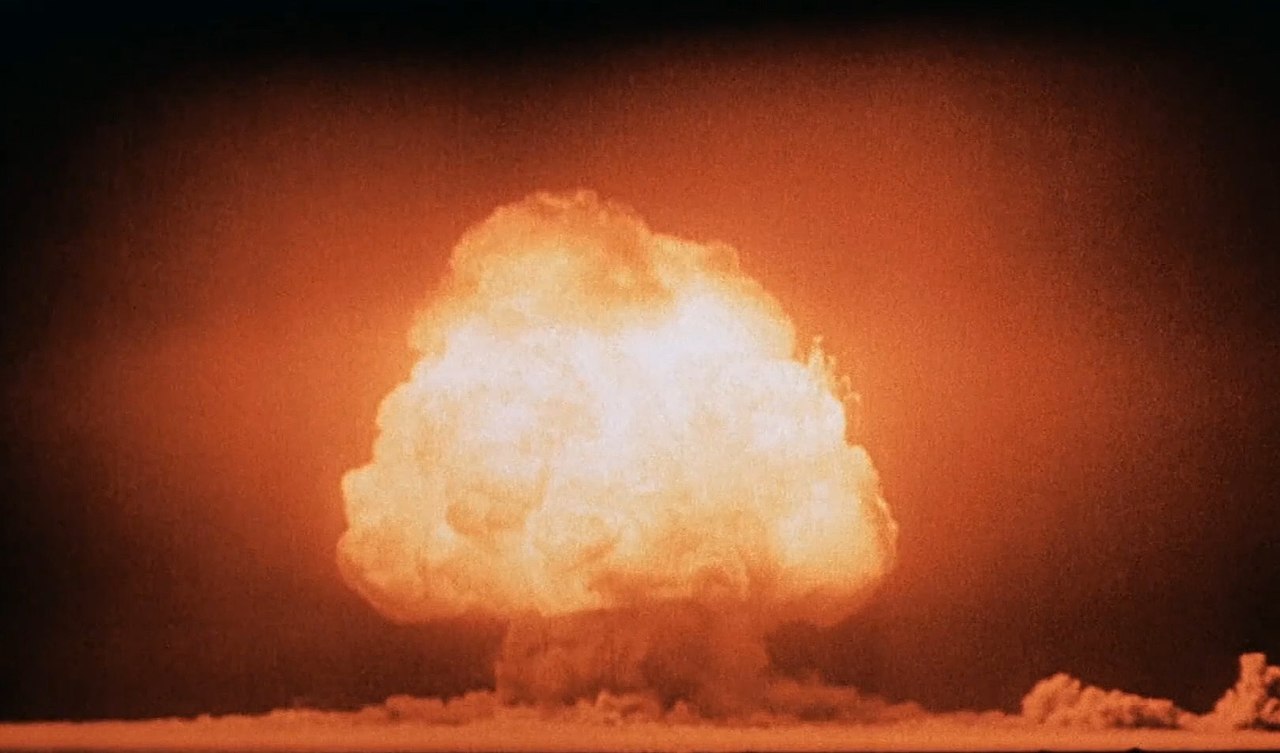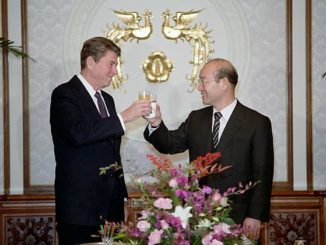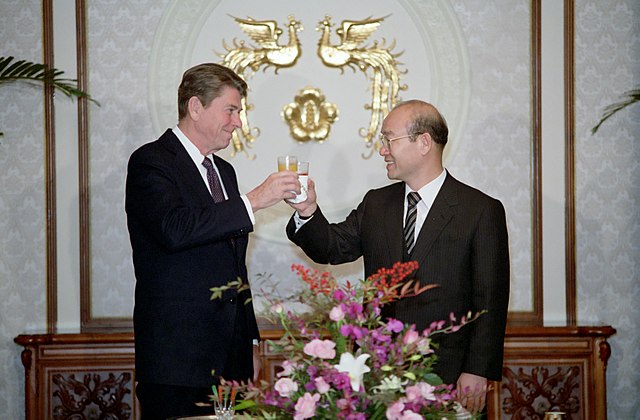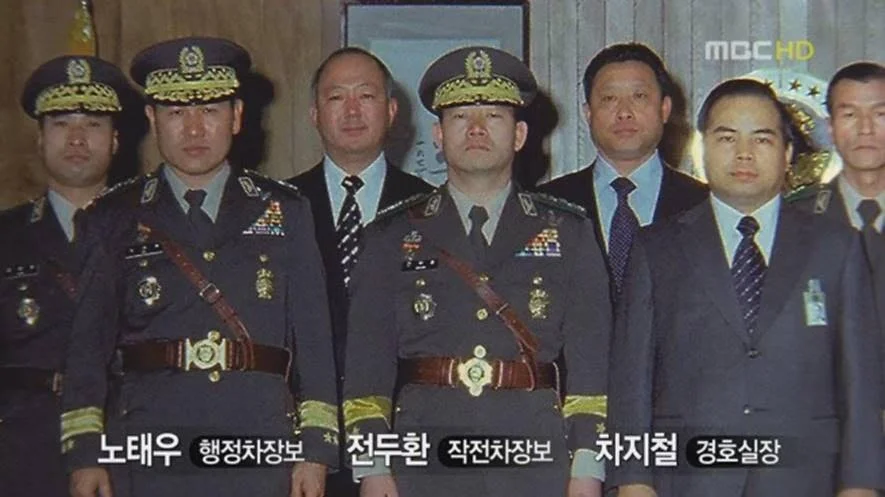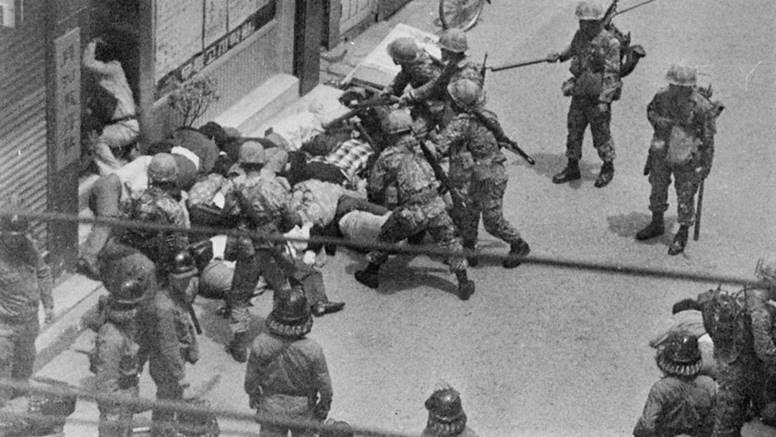In fact, journalist Tim Shorrock using the declassified “Cherokee files,” has detailed well the discussions that happened at the time of Gwangju: Top U.S. officials in the Carter administration 1) knew of the brewing crackdown and 2) greenlighted military action, knowing full well the costs. According to Shorrock’s meticulous reporting:
[Troops] were sent with the approval of the U.S. commander of the U.S.-Korea Joint Command, Gen. John Wickham… That decision, made at the highest levels of the U.S. government… exposed how deeply the Carter administration was involved in the planning for the military coup of 1980… the Carter administration had essentially given the green light to South Korea’s generals to use military force…
This action was authorized to avoid a second “Iran” debacle, where another U.S.-placed despot had been overthrown by popular revolt to U.S. consternation, humiliation and loss. Not only did the United States greenlight the massacre by U.S.-familiar Vietnam-veteran divisions, the United States deployed the USS Coral Sea to support the flank of Chun’s military during the retaking of the city and heightened surveillance support with Airborne Warning And Control System (AWACS). In other words, the Gwangju massacre was a U.S.-enabled-and-supported operation, done with explicit U.S. knowledge and coordination.
Pentagon lawyers have argued that they had previously “released OPCON” to the Korean military, so that these massacres were not done under direct U.S. control. That is a distinction without a difference, akin to a pit bull owner saying that they took their beast off the leash, and therefore are not responsible for the deadly consequences. The ROK military was a US-trained-and-coordinated combatant force; some units involved had served directly under the US I Corps in Vietnam only years prior to Gwangju. The very fact that the United States released OPCON, knowing full well their capacities, military histories, and what was on the cards, makes the whole argument a poor exercise in plausible deniability. No one who has the smallest understanding of how armies work would fall for “the pit bull ate my homework” excuse.
The United States has also argued that the Special Warfare division was exempt from OPCON at the time. This, too, is a legal fiction—Special Warfare Troops (SWF), of all ROK troops, are the most tightly integrated and bound to U.S. command, where they have a long history of training, coordinating, and working with and as proxies for the U.S. military. (The United States maintains this pretense because SWF are designed to infiltrate into North Korea, where the necessity to avoid U.S. command responsibility requires a legal fiction of “independence”).
The same could also apply for Chun’s coups as well. The Dec 12 coup involved the movement of the Vietnam-veteran 9th division, far away from its position guarding the DMZ to attack the incumbent government, along with maneuvers of the Capital Mechanized Division and Special Warfare Troops. The May 20 coup also involved large troop maneuvers to threaten and dissolve the Korean parliament. South Korea is a small, crowded peninsula, bristling with arms and military bases on hair trigger alert, surveilling and monitoring every inch of its territory for military movement. To assert that the U.S. command was aware of the coups is not conspiracy that presumes U.S. omniscience. It’s simply assuming clear signaling on a crowded dance floor to avoid inadvertent collisions. It’s inconceivable that such a massive troop maneuver would not have been signaled up the chain at minimum to avoid a friendly fire incident.
Return OPCON, Restore Peace
So where do these facts leave us?
As the media stir up the flies around Chun’s sordid past, they also seek to bury with his body the fact that South Korea’s military is an appendage of the U.S. military, and that its warts, chancres, and tumors are grown from within the U.S. body politic. Exorbitant atrocities such as the Bodo League Massacres, or the Gwangju Massacre, accrue to the secret debit account of the U.S. imperial ledger, where human rights violations vanish off the books, and where moral debt and karmic interest are never calculated or reconciled.
Despite a confusing, bifurcated organizational structure (independent command control vs. subordinated operational control; Peacetime OPCON vs. Wartime OPCON), the bare political fact is that South Korea’s military falls effectively under U.S. control, not simply in “wartime,” but whenever it is politically expedient or strategically necessary. This card was obvious when the ROK military simply defied Moon’s moratorium on THAAD missile installation and took its orders from the United States, not even bothering to notify the Korean president that the missiles had been delivered in-country. Subsequent investigation revealed that the South Korean military claimed a confidentiality agreement with the U.S. military as the reason to hide the information from South Korea’s own commander-in-chief.
Not only does the ROK military translate the will of the United States in domestic actions—including coups and massacres, but it also has functioned as a brutal sidekick for U.S. aggressions abroad, and serves as a strategic force projection platform and force multiplier for U.S. containment against China. Unlike any other “sovereign” state in the world, South Korea’s 3.7 million troops and material all fall under U.S. operational control the instant that the United States decides that they want to use them.
This is despite the fact that since the inception of its civilian government in 1993, South Korea has sued the United States for the return of OPCON. This request is now going into its third decade; the United States has simply stalled, moved goal posts, changed definitions and conditions, and stonewalled to this date.
This debate around OPCON is important in the current historical moment as the United States is escalating to war with China. Any de-escalation with North Korea will require the declaration of peace, predicated on the return of sovereign OPCON to South Korea. However, the United States will not seek to de-escalate tensions with North Korea, because if that happens, South Korea is likely to confederate in some manner with North Korea, join China’s Belt and Road Initiative and then become integrated as an ally of China. This would cripple the hegemonic control (or the architecture of U.S. hegemony) in Northeast Asia. Hegemony refers to the dominance of one group over another via various means. This renders any peace with North Korea antithetical to U.S. strategic interests.
Secondly, the U.S. escalation for war with China requires the capacity to access and threaten the Chinese landmass across a series of leverage points. Inescapably, South Korea will be a key theater of battle, because of its geostrategic position as a bridgehead onto China. Also, the temptation to leverage a force of 6.7 million South Koreans (3.7 million troops +3 million paramilitary) as cannon fodder for war against China is simply too irresistible to pass on. In light of this, Korea expert Tim Beal argues that in this moment of heightened tension with China, the most dangerous place in the Pacific is not the South China Sea or the East China Sea, but on the Korean peninsula.
We will see this conflict heighten as South Korea enters into a new presidential election cycle between a U.S.-favored conservative candidate, and a China-sympathetic progressive candidate.
Nevertheless, South Korea’s history offers a stark and ominous lesson, one that the mainstream media would prefer you ignore: A battle is brewing, with very high stakes. Under pressure, the United States has taken brutal actions to maintain control and hegemony. It may do so again.
Chun’s passing is being taken as an opportunity to distribute soporific drafts of historical amnesia—the better to sleepwalk into war or tragedy, again.
People with a conscience should not let this misdirection pass. To close one’s eyes to history is to enable future atrocities and war. Only with eyes wide open does the public have a chance of staving off this coming war.
K.J. Noh is a scholar, educator and journalist focusing on the political economy and geopolitics of the Asia-Pacific. He writes for Dissident Voice, Black Agenda Report, Counterpunch, Popular Resistance, Asia Times, MR Online. He also does frequent commentary and analysis on the news programs The Critical Hour, By Any Means Necessary, Fault Lines, Political Misfits, Loud & Clear, Breakthrough News and Flashpoints. He believes a functioning society requires good information; to that end, he strives to combat the weaponization of disinformation in the current cold war climate.

